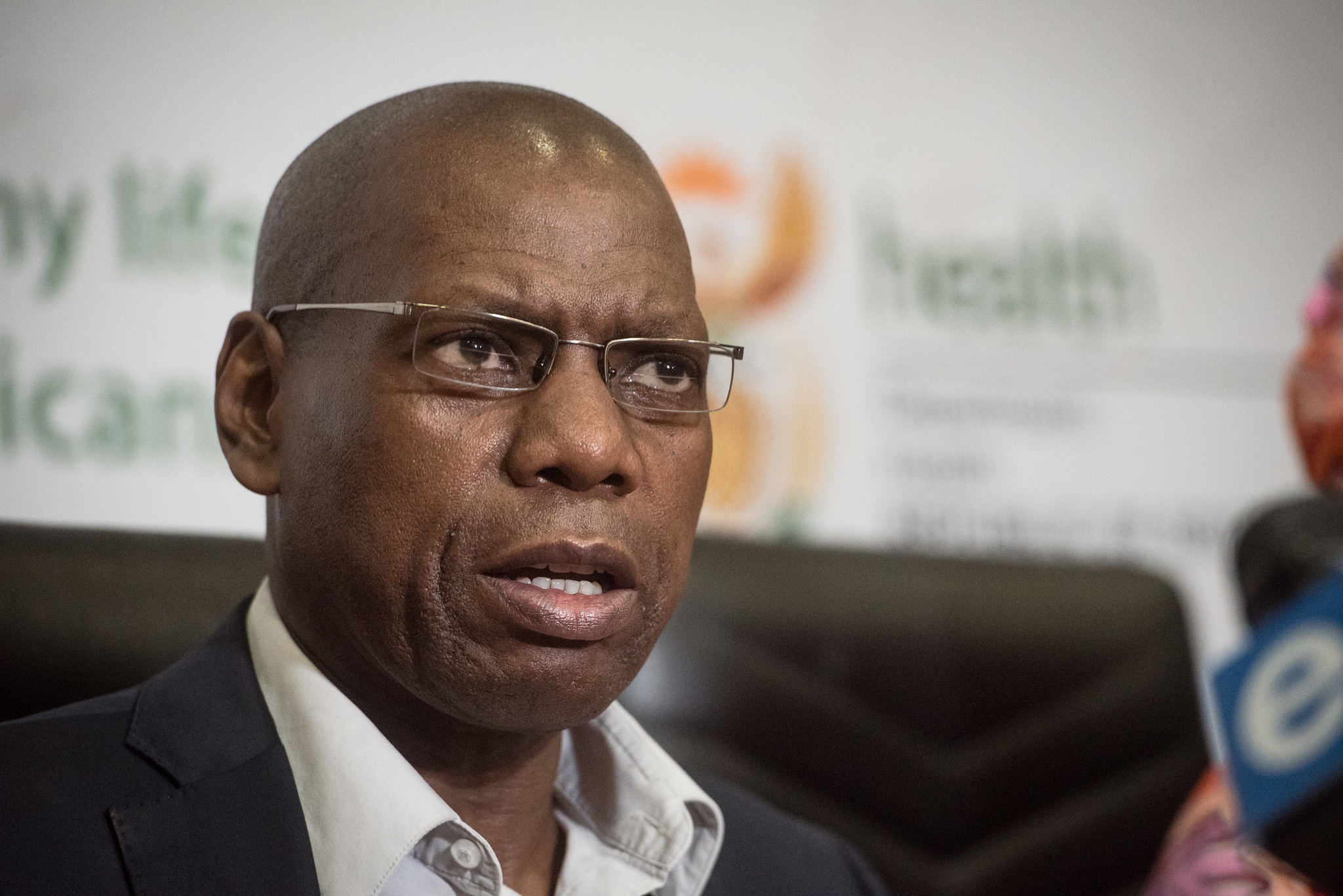'We do understand that the number of people who are coming into Gauteng is increasing pretty fast, but we have not got to a point where we have run out of the beds,' said Mkhize.

Despite growing concern that province is fast running out of bed space for Covid-19 patients, given the most recent spike in infection rates, Health Minister Zweli Mkhize insists that the province’s health system has not yet reached capacity.
“We haven’t breached the capacity for ICU. We do understand that the number of people who are coming into Gauteng is increasing pretty fast, but we have not got to a point where we have run out of the beds,” said Mkhize in an interview with Cape Talk’s Refilwe Moloto on Tuesday.
UPDATE: Infection peak rate will be lower than expected, Mkhize tells parliament
This after the country’s number of recorded cases breached the 200,000 mark with a large number of the recorded cases concentrated in Gauteng and the Western Cape.
Today we have breached the 200 000 mark, recording a cumulative total of 205 721 confirmed #COVID19 cases, the total number of deaths is 3 310 and the total number of recoveries is 97 848. pic.twitter.com/d6dsPDydDo
— Zweli Mkhize (@DrZweliMkhize) July 6, 2020
“We are looking at tightening on the management of the hospital of the distribution of beds so that if there is pressure in the area, they should be able to take someone to the nearest hospital,” he added.
the Western Cape suggests that even while the number of daily new infections are already decreasing, the peak of the curve will only be reached at the end of July or beginning of August. Whereas in Gauteng, the number of new cases per day is rising steadily.
— Genesis Analytics (@GenesisEconomic) July 7, 2020
and that there were 22,341 confirmed cases (3x less) on 22 June 2020, and assuming that 5% of COVID-19 cases require ICU beds and that there are 3000 ICU beds in Gauteng, we anticipate that hospitals will reach maximum capacity in terms of ICU bed utilisation on 10 July.
— Genesis Analytics (@GenesisEconomic) July 7, 2020
Management issues seemed to be the common thread throughout Mkhize’s interview as he tried to tie every query back to the concept, including the much-talked-about death of entrepreneur Shonisani Lethole, who died after being admitted to Tembisa Hospital for Covid-19 symptoms and allegedly being starved for 48 hours thereafter.
Gauteng health dept probes businessman Shonisani Lethole’s death at Tembisa Hospital https://t.co/yhRYH1pC5o
— The Citizen News (@TheCitizen_News) July 3, 2020
“Those things are going to happen every now and again,” said Mkhize, before adding “We have sent people to go and reinforce what we consider to be management weaknesses.”
This was also his answer in response to questions about reports of Eastern Cape medical workers refusing to attend to Covid-19 patients due to a lack of personal protective equipment.
“When we find difficulties we mustn’t think that’s the only thing we’ve got. Lots of good work is happening. We must also acknowledge that there will be those instances where people misbehave and we will have to take action.”
When given yet another chance to address the issue of Lethole’s death, Mkhize labelled the situation “very sad”, before providing an update of the investigation into the matter this far, stating that investigators are not getting conclusive answers from hospital staff.
“It’s a very sad situation if any person’s life is lost. We respond to many people who indicate that they have not been given proper treatment and we want to make sure that is dealt with, and in this case that is exactly what we wanted to do.”
“We are investigating the matter further because the preliminary investigation has given us contradictory issues,” he added.
The minister further addressed speculation of yet another impending lockdown for Gauteng due to previous statements by the government, cautioning that areas that experience spikes may experience additional restrictions to manage the rate of infection.
“We will need to consider additional restrictions in some areas, but certainly, we need a way of supporting communities to move towards behavioural change that will promote a reduction in the spread,” he said before repeating that no decision regarding lockdown had been taken yet.
He also reminded listeners that there had been an anticipation of the numbers that we are seeing now, but added that government is still concerned with this turn of events.
When drawn on his position regarding taking the Eastern Cape province into administration following reports of malfeasance with regards to funds allocated for the fight against Covid-19, Mkhize stated that he would not recommend administration at this point, due to how challenging a strategy it is to implement.
He also cited two additional metrics in the form of co-operation on the part of the province and an effort to be doing what they are legally supposed to be doing as a basis for his reasoning.
“When those situations happen, you can only take over the province when you think the problem is only because of the management by those who are in charge that you wish to remove.”
READ NEXT: Mkhize vows deal for private hospital beds will benefit all
For more news your way, download The Citizen’s app for iOS and Android.






